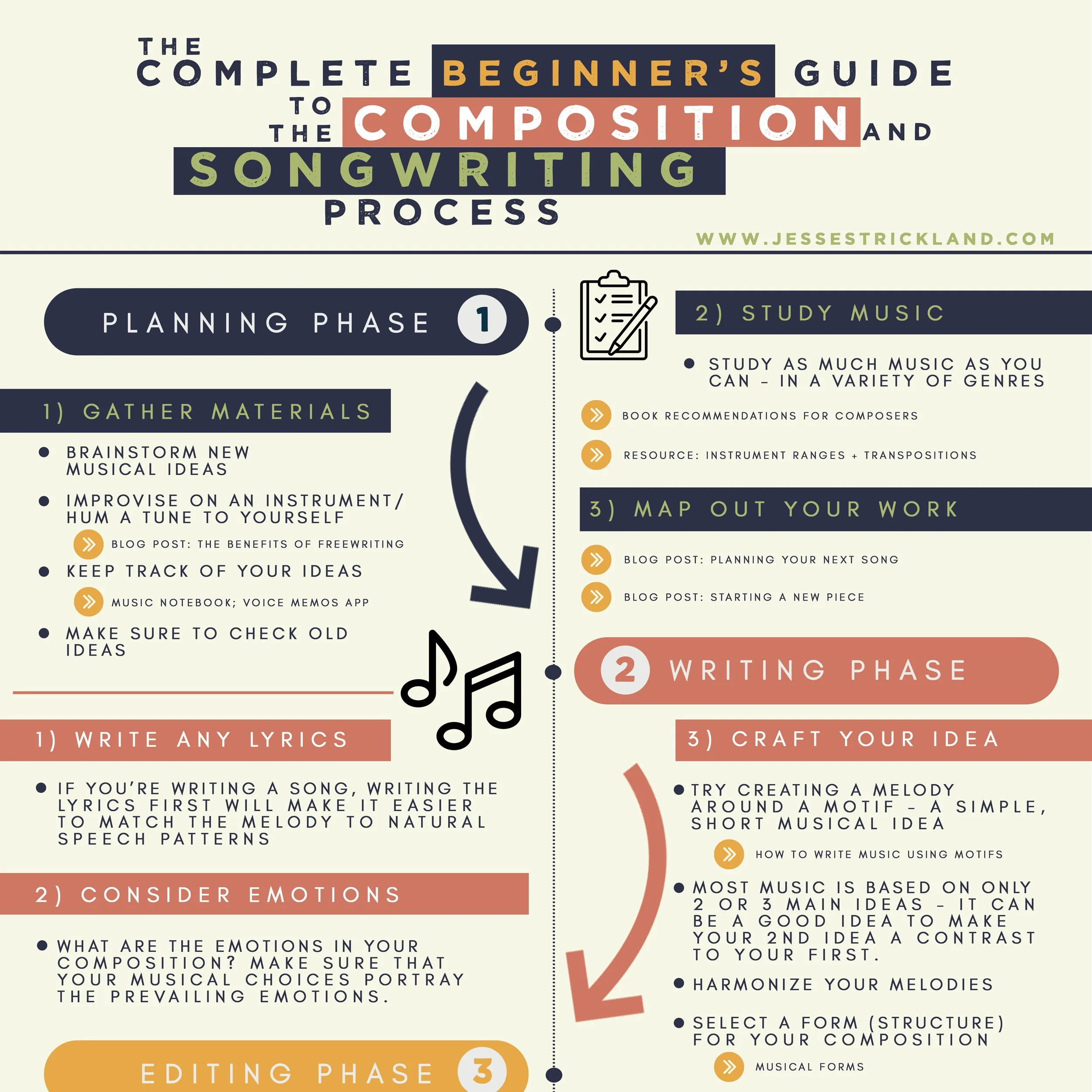Anyone Can Write Music
Writing music is a craft. It's not a rare gift only given to a select few. And because it's a craft - all musicians can and should write music. And today I’ve got an exercise for you to help you get started.
Writing Music is like Writing Language
Let's think about language for a second. That's what I'm using right now to communicate with you. I could have chosen to communicate with you through a series of colored dots - but that wouldn't have been as effective.
In order to communicate with language, you need to be familiar with that language. I can put together sentences of words and you understand them because I know a lot of words and their meanings, I know sentence structure, and I know what it is that I want to communicate. I'm not inventing any new words to communicate this with you - but I am writing. Well, speaking in this case - but I did write it down in the script before I started speaking. Well, and actually before I wrote this script I spoke these thoughts into my voice memo app. And before that, I actually wrote these... [It cuts off, I start the camera over] You get the point - these are thoughts that I am communicating, and I am capable of that because I have learned English. And these particular thoughts do not require me to revolutionize linguistics.
In the same way, all musicians have within them the ability to communicate through writing music - because they know music.
Composition is Just Expression
Just because you have it inside you, that's not to say you'll immediately be good at it. That seems logical enough. My daughter when she was learning to talk would put together sentences like "me want doing swing", but she kept practicing and now she knows that "I would like to swing" better communicates what she wants.
All composition is just a musical expression. And you "getting better" at composition is you getting better at communicating that expression. And like with everything else in life, that happens through practice.
There's never been more resources
And you'll need to practice quite a bit. But it's worth it. And you might say "I have no desire to compose for a career." But I think literally every single musician can and should regularly express themselves by writing their own music. I write a lot of English all the time despite not being a career Novelist. My goal in writing in English isn't to have my books read by the whole world. I wrote a text message a few minutes ago, and it doesn't mean that I have intentions of become Geoffrey Chaucer.
You've got a lot of resources to help you - more than there have ever been. Countless videos and courses on the internet that you can learn to write music. I had none of that 20 years ago when I was learning to compose.
Not only that. But there are so many resources for you to experiment and learn on your own. With DAWs and Instruments and what not. Spitfire Audio has a free version of their BBC orchestra library that gives you access to practice with a full orchestra. It's Crazy.
I've got a free resource for you today. I've heard from a number of my composition students that keeping track of the whole process of writing a piece is often overwhelming. So, I've got this interactive PDF that outlines the composition process step-by-step. It's got links to 16 additional resources that I think you'll find useful.
A Writing Exercise
If you're still thinking "well, that makes sense - but I already know that I can't write music," I want you to try this exercise. It's going to feel awkward. Fight against that feeling. Composition is messy. And here’s the thing. Our goal today isn’t to write a whole song, or a whole piece. The goal is to just write something. Here’s what I want you to do:
Step 1. Take out your phone, and find your voice memo app.
Step 2. Hum something to yourself. Anything. Long or short, doesn't matter. Don't worry about whether or not it is good. Don't overthink it. Just hum something.
Step 3. Do it again. You might as well leave that voice memo going - you never know what's going to happen. Try to get up to five.
Step 4. Listen back to your voice memo. Let's go ahead and quickly come to terms with the fact that it isn't a Radio quality recording and move past that.
Step 5. What do you feel like each snippet is expressing? Happiness? Confusion? Hunger? If composition is expression, what do the melodies you've come up with express?
Step 6. Identify some fragments that you really like. You're looking specifically for something you could build off of. Again, don't be too critical. You're looking for something that you like, not something you think is good. Or, even what you think other people might think is good. Your identification of things you like is a proof of concept that you can write music.
Step 7. Repeat this entire process quite a lot. Hum to yourself all the time. Eventually, humming a melody will be much easier. You'll end up liking more of what you came up with. And you'll better be able to say what your melodies are expressing.
I'd love to hear from you: do you compose music? If so what kind of music do you write? How did you get into writing music? And if you don't write music - do you want to? What obstacles do you see that keep you from it?

